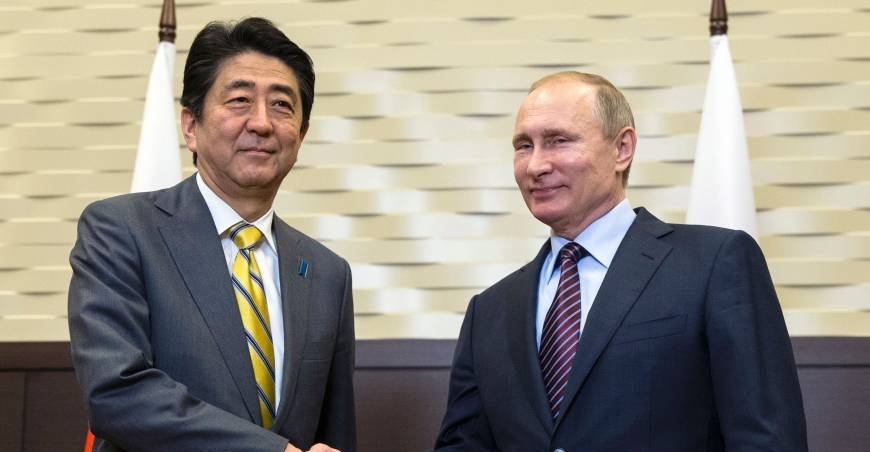Japan seeks peace with Russia
May 28, 2018 | Expert Insights

Japanese Prime Minister Shinzo Abe, during a recent visit to Russia, announced that the two nations should sign a peace treaty in order to further their economic collaboration. Russia and Japan have not signed a peace treat since World War II due to conflict over territory that has remained unresolved.
Background
Historically, Japan and Russia had enjoyed had cordial relations. However, a territorial clash in the Manchuria region of north-eastern China led to the Russo–Japanese War in 1904. This war resulted in a Japanese victory and played a key role in weakening the Russian monarchy. Japan would later intervene in the Russian Civil War from 1918 until 1922, sending troops to the Russian Far East and Siberia. That was followed by border conflicts between the new Soviet Union and the Empire of Japan throughout the 1930s. The two countries signed a nonaggression pact in 1941, although the Soviet government declared war on Japan anyway in August 1945, invading the Japanese puppet state of Manchukuo as well as seizing the chain of islands just north of Japan. To this day, both nations have not signed a peace treaty after World War II. This is due to the Kuril Islands dispute.
Kuril Islands dispute
The dispute over the Kuril Islands has kept Russia and Japan from embarking in cordial bilateral relationship. These islands had been annexed by the Soviet Union in aftermath of the Kuril Islands landing operation at the end of World War II. The San Francisco Peace Treaty with Japan from 1951 states that Japan must give up all claims to the Kuril Islands, but it also does not recognize the Soviet Union's sovereignty over the Kuril Islands. Russia maintains that the Soviet Union's sovereignty over the islands was recognized following agreements at the end of the Second World War. Japan disputes this claim.
Analysis
Japanese Prime Minister Shinzo Abe visited Moscow on May 26th, 2018, to conduct high levels talks regarding the disputed Kuril Islands. The goal was to arrive at a solution over this disputed territory with aim to promote more economic cooperation between the two countries. Russia and Japan also discussed the ongoing problems related to North Korea.
Prime Minister Abe stated that the two countries have to sign a peace treaty in order to ensure more collaboration between the nations. Speaking after their meeting, he also said they had agreed to speed up joint commercial activity to include health care, energy, and urban development on the disputed chain of islands seized by Moscow at the end of World War II.
"We are already advancing work on collaborative agricultural activities on four islands and humanitarian measures for former inhabitants of the islands," Abe said. "Solving (the dispute) is not easy but we would like to end it within the lifetime of our generation." "We have observed rising trade and investments, but what's most important is the interest of both countries to develop relations," stated Putin.
The two leaders also spoke about the escalating crisis in the Korean peninsula. Abe said "Russia and Japan will maintain close contacts so that North Korea goes in the right direction." He added, “The most important (thing) is for North Korea to carry out full and irreversible denuclearization.”
However, there remain concerns in Tokyo. According to media reports from the region, Tokyo remains sceptical over whether economic incentives would eventually get Russia to hand over the islands back to the Japan. “It is unimaginable that Russia would take an attitude of compromise over the territorial issue amid such an international situation,” said Itsuro Nakamura, a professor of Russian politics at the University of Tsukuba.
Assessment
Our assessment is that Japanese Prime Minister Shinzo Abe finds himself walking a tightrope between wanting to resolve this dispute but also ensuring Japanese interests are not compromised. The visit comes during a period when Russia’s relationship with Western countries has deteriorated and this also has to be considered by the Japanese Premier. Given the existence of the US-Japan alliance, it seems unlikely that Kremlin would relinquish the Islands, which provides an advantage to Russia.








Comments